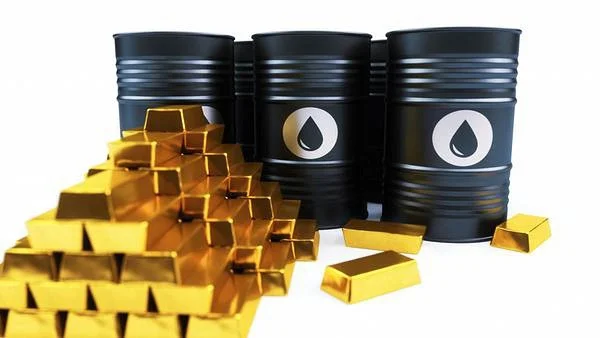On January 15, 2023, Ghana welcomed the arrival of its first consignment of 40,000 metric tons of oil at Tema Port, marking a significant milestone in the innovative gold-for-oil deal with the United Arab Emirates (UAE). This initiative, aimed at stabilizing the country’s economy and reducing fuel prices, has sparked both optimism and skepticism as Ghana navigates its ongoing economic challenges.
A Strategic Move to Ease Economic Pressure
Announced by Vice President Dr. Mahamudu Bawumia in 2022, the gold-for-oil policy seeks to address Ghana’s foreign exchange constraints by bartering gold for petroleum products. The initiative is designed to reduce the demand for US dollars in oil imports, which has contributed to the cedi’s depreciation, reaching GH¢13 to the dollar by January 2023 after briefly appreciating to GH¢8 in December 2022. The Ministry of Lands and Natural Resources confirmed the arrival of the 40,000-ton consignment, with the Energy Ministry, Bulk Oil Storage and Transportation (BOST), and Oil Marketing Companies now tasked with formulating plans for its distribution and sale.
Deputy Minister of Lands and Natural Resources, George Mireku Duker, told Citi News the previous week that the first shipment was expected imminently, a promise fulfilled with the January 15 delivery. The ministry emphasized that this consignment would help lower fuel prices, providing relief to consumers grappling with inflation, which hit 52.2% in December 2022.
Potential Benefits for Fuel Prices and Currency Stability
The gold-for-oil deal is seen as a strategic response to Ghana’s economic woes, particularly the cedi’s volatility and the strain on foreign exchange reserves. By using gold, one of Ghana’s primary exports, to procure oil, the government aims to conserve dollars and stabilize the cedi. The Bank of Ghana’s Governor, Dr. Ernest Addison, speaking before the Public Accounts Committee on January 16, 2023, noted that the policy could alleviate pressure on the exchange rate by reducing the reliance on foreign currency for oil imports by private oil marketing firms.
The Ministry of Lands and Natural Resources highlighted that the initiative could lead to more affordable fuel prices, a critical issue in a country where rising costs have strained households and businesses. The successful delivery of this first consignment marks a tangible step toward achieving these goals, with plans for further shipments to sustain the program.
Skepticism and Questions of Sustainability
Despite the enthusiasm surrounding the deal, critics have raised concerns about its long-term viability. Some economists and analysts question whether Ghana’s gold reserves, which stood at eight tonnes in 2022, can support ongoing oil imports without depleting national resources. The cedi’s 55% depreciation against the dollar in 2022 underscored the urgency of innovative solutions, but skeptics argue that the policy does not address deeper structural issues, such as Ghana’s reliance on imported goods and limited export diversification.
The Ministry of Lands and Natural Resources has sought to allay these concerns, asserting that measures have been put in place to ensure the program’s sustainability. While specific details on these measures were not disclosed, the government’s commitment to the initiative suggests confidence in its potential to bolster economic stability.
A Broader Economic Context
The gold-for-oil deal comes at a critical time for Ghana, as it seeks a $3 billion International Monetary Fund (IMF) bailout to address its fiscal challenges, including a debt-to-GDP ratio projected to reach 107% by the end of 2022. The Domestic Debt Exchange Programme (DDEP), another key component of Ghana’s economic recovery plan, has faced significant opposition, further complicating the government’s efforts. The success of the gold-for-oil initiative could play a pivotal role in easing these pressures, particularly if it reduces fuel costs and stabilizes the cedi.
As the Energy Ministry and BOST finalize distribution plans, the impact of this first consignment on fuel prices and the broader economy will be closely monitored. For now, the arrival of 40,000 metric tons of oil marks a hopeful step toward addressing Ghana’s economic challenges through creative policy measures.






